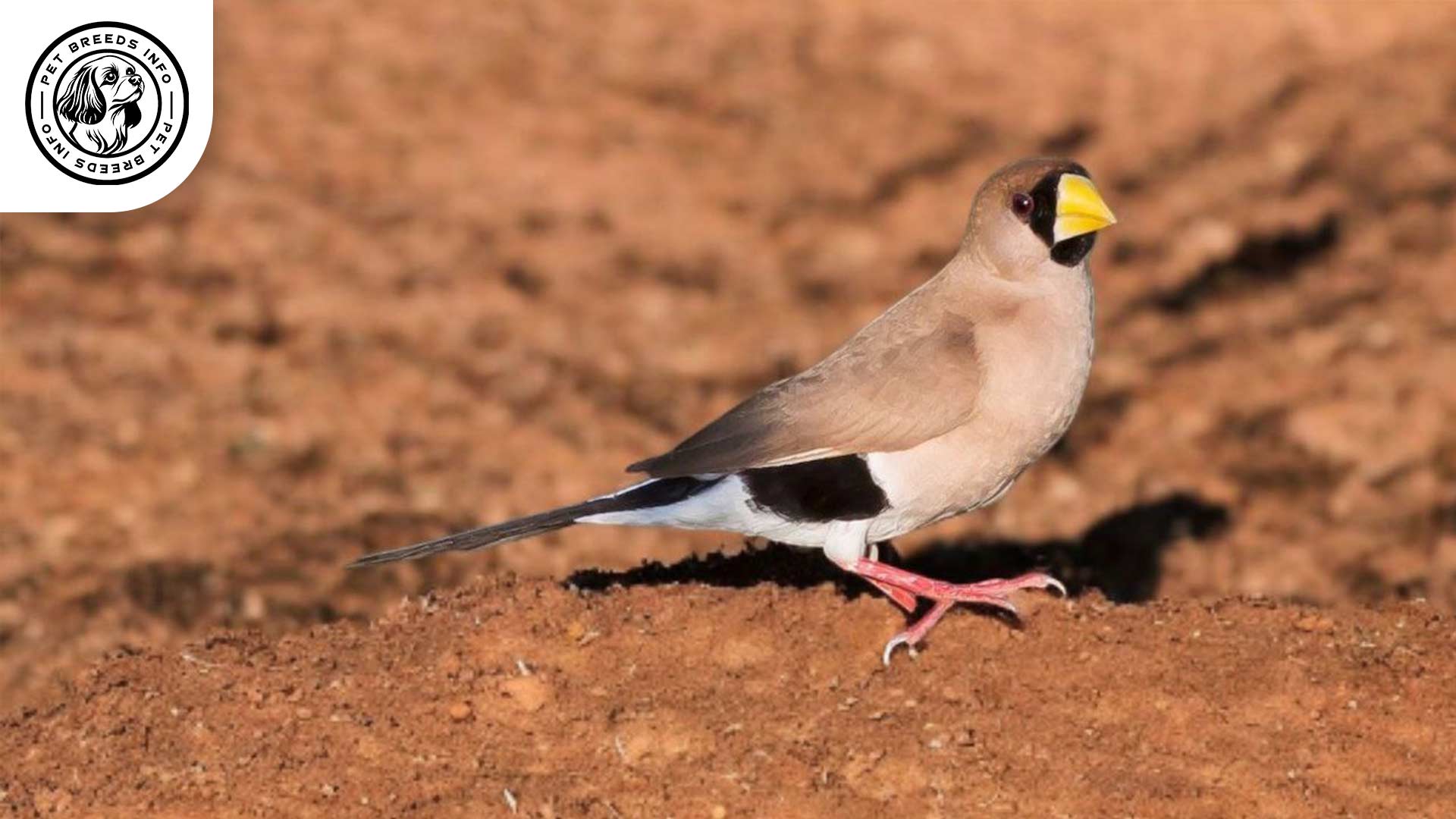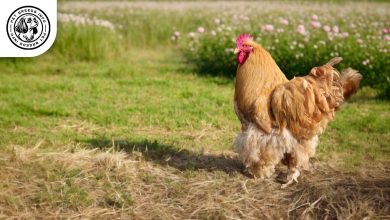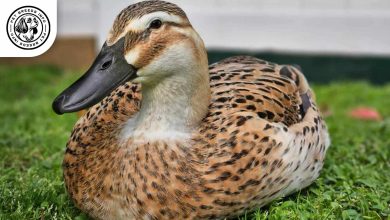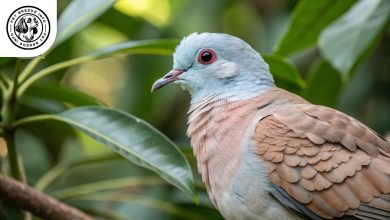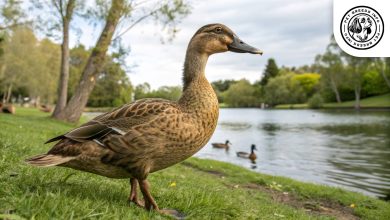Masked Finch Bird: Personality, Lifespan, Food & Care
General Introduction of the Breed
The Masked Finch (Poephila personata) is a small and charming species of finch native to Australia. This bird is well-known for its distinctive black facial markings, which give it its “masked” appearance. It is also sometimes referred to as the Black-faced Finch.
Masked Finches are predominantly found in the northern regions of Australia, where they thrive in grasslands and savannahs. They are social birds that often live in flocks and are commonly seen near water sources. Due to their striking appearance and pleasant temperament, they have become popular among bird enthusiasts and aviculturists.
Table of Contents
| Common Name | Masked Finch |
| Scientific Name | Poephila personata |
| Origin | Northern Australia |
| Size | 12–14 cm (4.7–5.5 inches) |
| Lifespan | 5–8 years (up to 10 with excellent care) |
| Colors | Brown, beige, black face mask |
| Talking Ability | Cannot talk; produces soft chirps |
| Noise Level | Low |
| Social Behavior | Social, peaceful, thrives in flocks |
Physical Characteristics
The Masked Finch is a small bird, typically measuring around 12–14 cm (4.7–5.5 inches) in length. They have a slender body structure and a relatively short tail.
Their plumage features a combination of brown, beige, and black markings. The most distinguishing characteristic is the black mask that covers their face, extending from the beak to the eyes. The rest of the body is light brown with a slightly paler underside.
Their eyes are dark and round, complementing their facial mask. They have short, rounded wings that allow for swift flight and agile movement. The beak is small, conical, and usually a pale, creamy color, well-suited for cracking seeds.
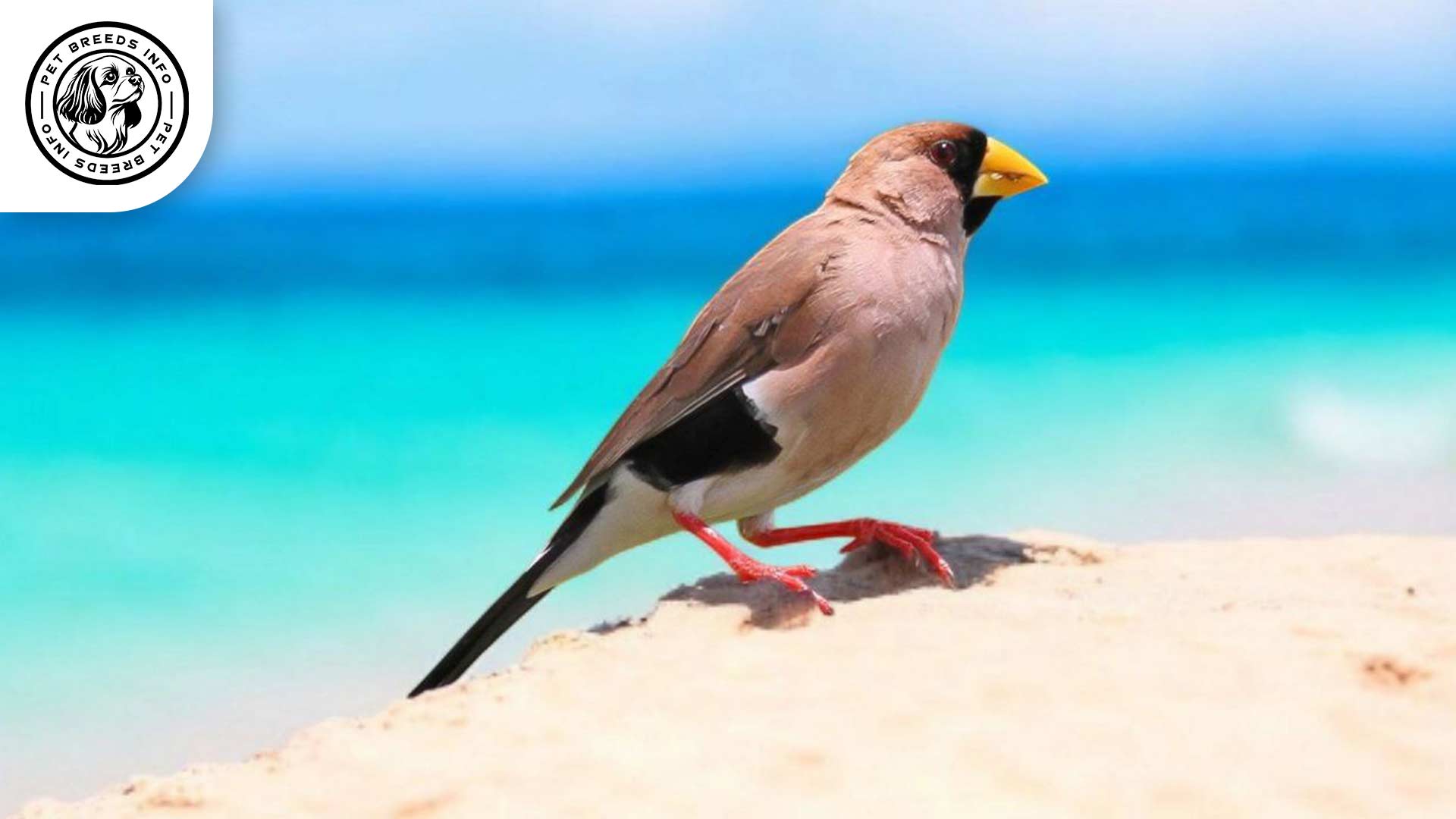
Personality and Temperament
Masked Finches are social and active birds that thrive in groups. They are intelligent and quick learners, making them relatively easy to care for in a well-maintained aviary.
They have a moderate energy level, requiring plenty of space to fly and explore. These finches are generally peaceful and get along well with other birds, as long as they are not overly aggressive.
Unlike some finches, they are not overly attached to humans but can still become accustomed to their keepers through regular interaction. They are not known for being particularly vocal, but they do produce soft, pleasant chirps as part of their daily communication.
Read More: Mandarin Duck
Care and Maintenance Requirements
Masked Finches require an aviary or a spacious cage where they can move freely. A large flight cage or an outdoor aviary suited for small finches is ideal.
They need perches of varying sizes, as well as natural foliage or nesting material to simulate their natural environment. Regular enrichment, such as swings and branches, will keep them active and engaged.
Their grooming needs are minimal, but they enjoy bathing. Providing a shallow dish of water allows them to clean their feathers regularly.
They are adaptable to warm climates but may struggle with extreme cold. If kept outdoors in colder regions, they need adequate shelter and heating during winter.
Diet and Nutrition
Masked Finches primarily feed on a diet of high-quality finch seed mix, but their diet should also be supplemented with fresh vegetables, fruits, and leafy greens.
A diet rich in protein, such as mealworms and egg food, is beneficial, especially during breeding or molting seasons. Cuttlebone or mineral blocks should be provided to meet their calcium requirements.
Avoid giving them processed human foods, chocolate, avocado, and anything high in salt or sugar. Fresh drinking water should always be available.
Health and Common Medical Issues
Masked Finches are generally hardy birds, but they can be prone to common finch diseases such as respiratory infections, mites, and digestive issues.
They should be kept in clean environments with fresh air and proper ventilation to prevent respiratory problems.
The average lifespan for Masked Finches is around 5–8 years, though they may live longer in optimal living conditions with proper care.
Regular veterinary checkups, a balanced diet, and a stress-free environment help ensure their long-term health.
Training and Behavior Management
Masked Finches are not typically trained like parrots, but they can be conditioned to become comfortable in their environment and around humans.
Providing a calm, consistent routine helps them feel secure in their habitat. They respond well to gentle interactions but are naturally more independent than highly social pet birds.
Encouraging natural behaviors through an enriched aviary setup helps reduce stress and promotes their overall well-being.
Read More: Indian Fantail Pigeon
Interaction with Other Animals and Humans
They are social with other finches and do best in small flocks or pairs. When housed with other birds, it is important to ensure compatibility to prevent any aggressive tendencies.
Masked Finches are not aggressive but can be territorial during breeding seasons. Keeping them in an aviary with ample space can help reduce conflicts.
They are not cuddly birds and prefer minimal handling. However, with time and patience, they can become accustomed to a routine and human presence.
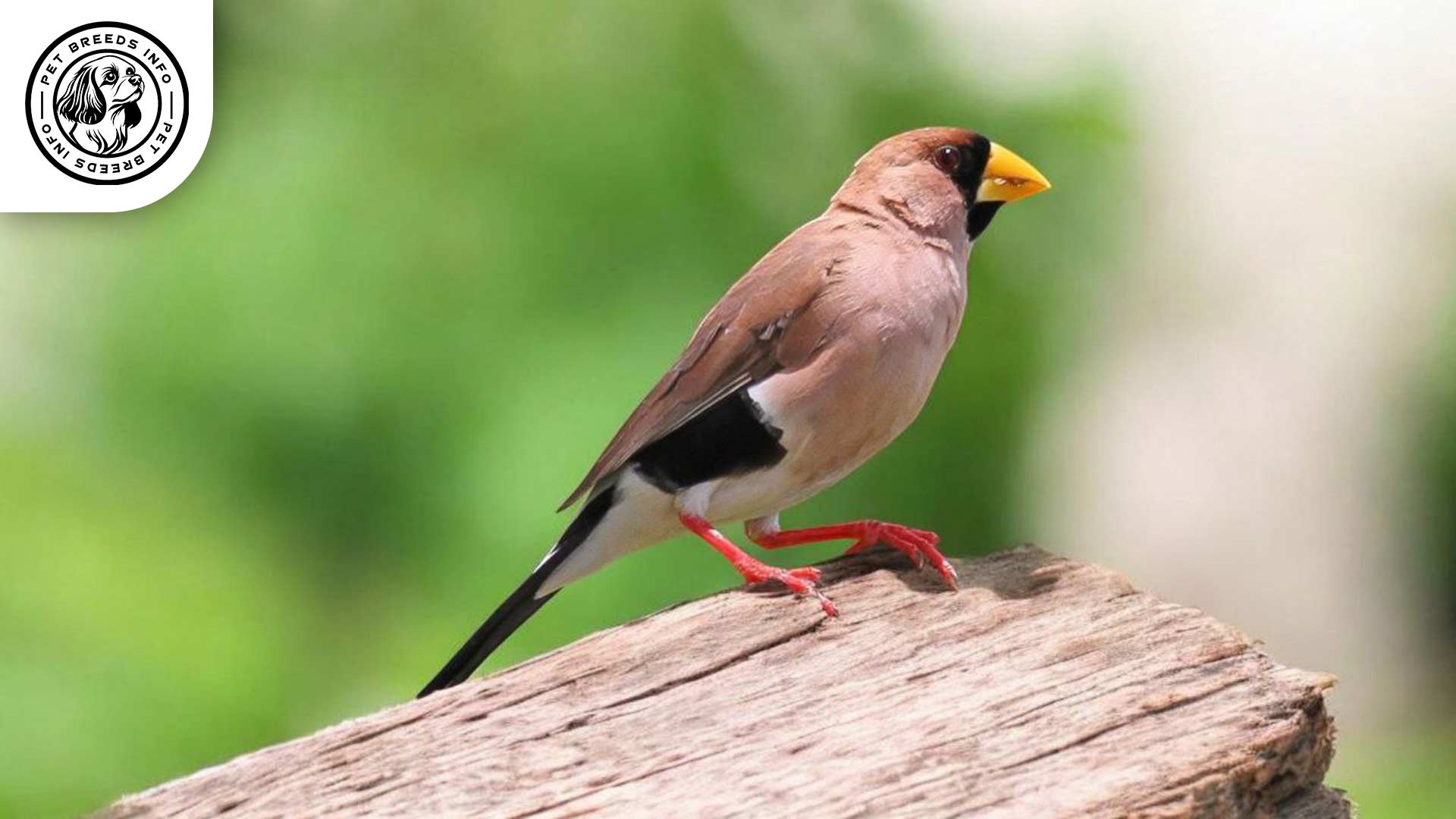
Price and Availability
The cost of a Masked Finch varies depending on the breeder, age, and availability, but typically ranges between $30 and $100 per bird.
When purchasing a Masked Finch, it is best to choose a reputable breeder or specialty aviary that provides healthy, well-cared-for birds.
Adopting from a bird rescue or avian adoption center is another worthwhile option for those looking to provide a home for a bird in need.
Read More: Lemon Dove Bird
Conclusion and Final Thoughts
The Masked Finch is a delightful and low-maintenance choice for bird enthusiasts seeking an active yet independent avian companion. Their gentle nature and striking appearance make them excellent additions to aviaries and bird-friendly households.
They are best suited for owners who can provide a spacious habitat, maintain a proper diet, and ensure companionship with other finches.
Before adopting a Masked Finch, potential owners should consider their space requirements, diet, and social needs to ensure they can provide a suitable home for these charming birds.
FAQ
Are Masked Finches good pets for beginners?
Yes, they are low-maintenance and well-suited for novice bird keepers with the right setup.
Can Masked Finches be housed with other birds?
Yes, they do well with other peaceful finch species in a spacious aviary.
Do Masked Finches require a large cage?
Yes, they need a flight cage or aviary to support their active nature.
How long do Masked Finches live?
Typically 5–8 years, though some live longer with excellent care.
Do they need any special diet?
A balanced finch seed mix with vegetables, occasional protein, and calcium supplements is ideal.
